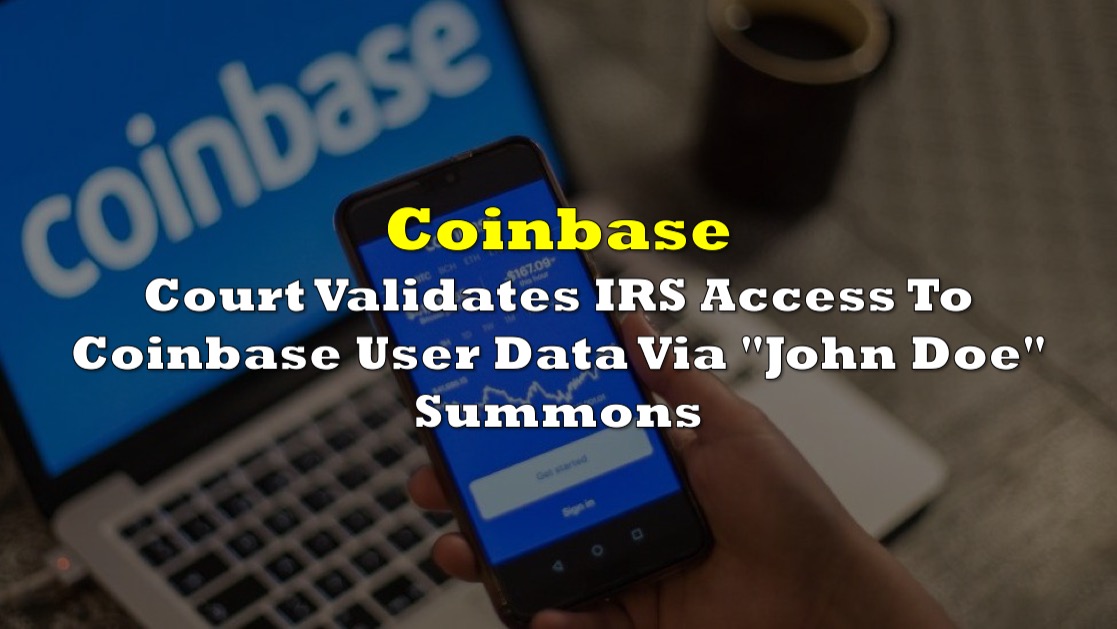In a groundbreaking decision, a US Federal court has granted the Internal Revenue Service (IRS) the authority to access user data on the popular cryptocurrency exchange Coinbase (NASDAQ: COIN). This ruling comes as a blow to privacy advocates and crypto enthusiasts who sought to block the IRS from obtaining such information on constitutional grounds.
The case was initiated by James Harper, a prominent early-era crypto trader and former in-house legal consultant for the Bitcoin Foundation. Harper filed a lawsuit in August 2020 against the IRS, accusing them of violating his rights through the use of a “John Doe” summons, a commonly employed tactic by government agencies to request data for tax evasion investigations.
In yet another victory for the US IRS's crypto-enforcement efforts (where the IRS remains undefeated), a federal court just ruled that the IRS has the legal authority to access Coinbase users’ trading data via a “John Doe” summons, and doing so is not a violation of… pic.twitter.com/KKvkdjHYTX
— John Reed Stark (@JohnReedStark) June 2, 2023
The US District Court of New Hampshire, referencing a recent Supreme Court ruling, declared that the powers granted to the IRS by Congress superseded Harper’s claims for additional protections. Court documents revealed that Harper’s argument about the violation of his Fourth and Fifth amendment rights was dismissed.
“As for Harper’s statutory claim, the statute at issue does not expressly or impliedly provide taxpayers with a private right to sue the IRS for purported statutory violations,” the court said.
Harper had previously fought against the IRS’s initial request for Coinbase to hand over all user trading records. Despite initially resisting, Coinbase eventually had to comply with a separate summons, forcing them to provide user information, including Harper’s, to the IRS.
After appealing the case, Harper was granted the right to sue the IRS in the First Circuit last year. The IRS alleged that Harper had not adequately reported his cryptocurrency trades in 2013 and 2014, leading to action against him and others. The agency has been utilizing John Doe summons since 2016 to enforce regulations on digital assets.
This court ruling sets a significant precedent for the IRS’s access to user data on cryptocurrency exchanges, raising concerns about the privacy of crypto traders.
In a similar development, a California federal court granted an order in August 2022 allowing the IRS to issue a John Doe summons to SFOX, a crypto prime broker based in Los Angeles. The order sought data on US taxpayers who conducted crypto transactions worth at least $20,000 with or through the SFOX platform between 2016 and 2021.
Information for this briefing was found via the sources mentioned. The author has no securities or affiliations related to this organization. Not a recommendation to buy or sell. Always do additional research and consult a professional before purchasing a security. The author holds no licenses.











